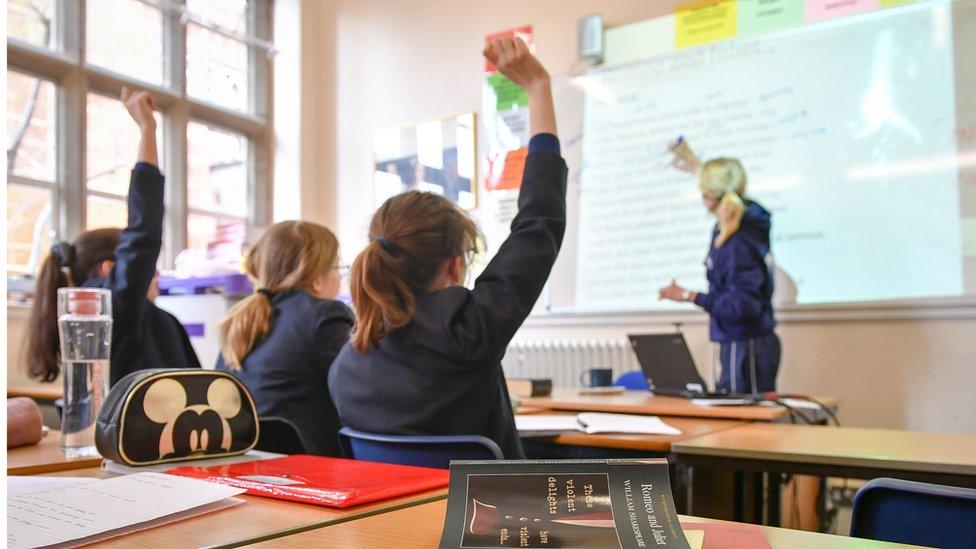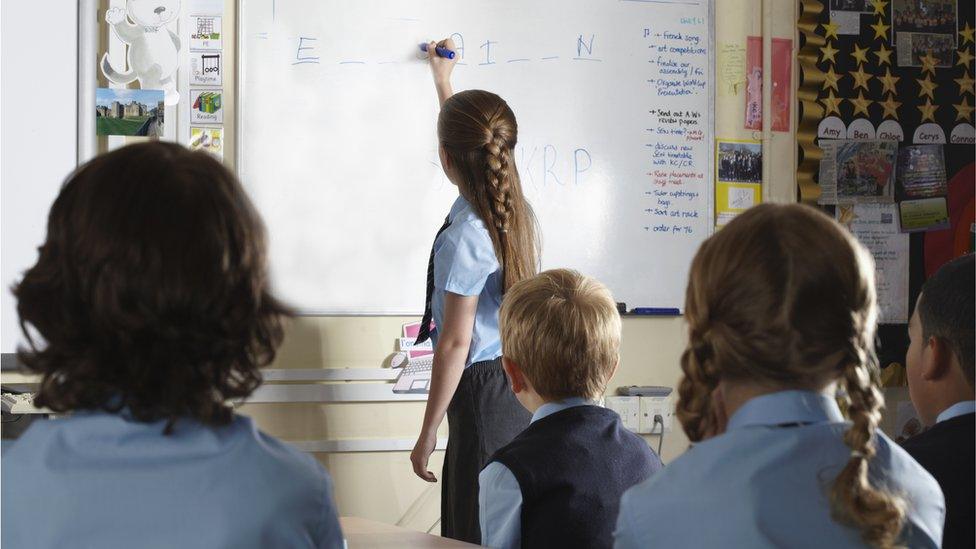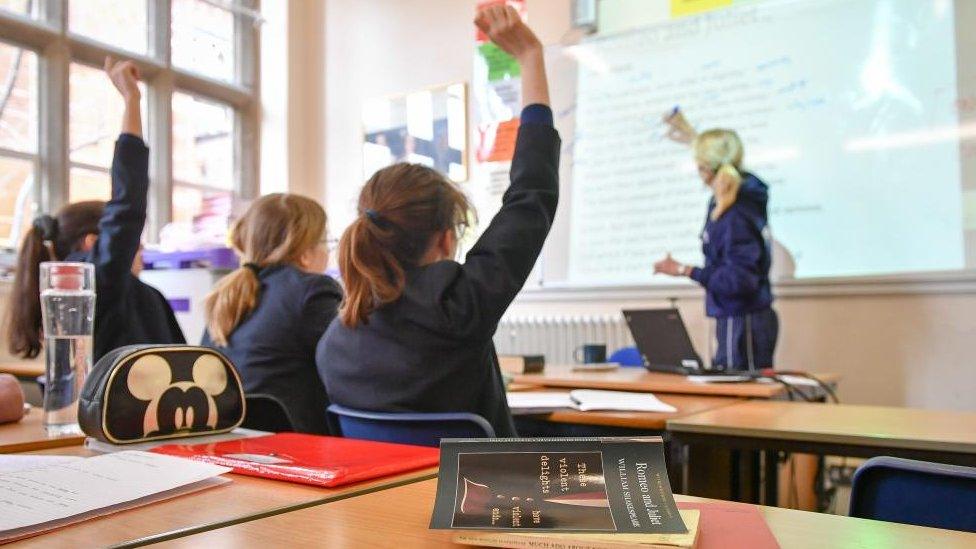Labour drops plan to strip public schools of charitable status
- Published
- comments

Labour has dropped plans to end charitable status for private schools but says it will still remove other tax breaks if it wins the next general election.
The status exempts some private schools in England and Wales from taxes.
Labour leader Sir Keir Starmer had previously said charitable status for private schools could not be justified.
The party now says it can remove "unfair tax breaks" without changing the rules on charitable status.
There are about 2,500 private schools in England and Wales and the government says half are registered as charities.
Having charitable status means schools can not operate for a profit and are eligible to claim some tax exemptions, for example, on donations and business rates.
Since 2006, private schools have had to demonstrate they were creating "public benefit" to maintain their charitable status.
Labour says it would charge private schools 20% VAT, as well as ending business rates relief, to raise an estimated £1.7bn.
A spokesperson said the party would use the money raised from the changes "to fund desperately needed teachers and mental health counselling in every secondary school".
Speaking to the BBC's Nick Robinson on the Political Thinking podcast, Sir Keir said the policy was not an "attack on private schools", but that the country had to "do something about the appalling state of our schools" and that those changes would need to be funded.
"I'm very comfortable with private schools," he said, "but I want our state schools to be just as good, so it doesn't matter whether you send your child to private school or to state school because you'll get equal chances in life."
The party believes it would be quicker to end VAT relief, rather than removing charitable status from schools, which could be complicated and potentially open to legal challenge.
But the move appears to contradict comments made by Labour and members of Sir Keir's top team.
In 2021, Sir Keir told the Sunday Mirror: "Labour wants every parent to be able to send their child to a great state school. But improving them to benefit everyone costs money. That's why we can't justify continued charitable status for private schools."
In a press release in July last year, the party said: "Labour will end the charitable status of England's private schools."
And during a parliamentary debate on the taxation of schools in January, Shadow Education Secretary Bridget Phillipson said "charitable status for most private schools is something that should come to an end".
Senior party sources argue that their charitable status pledge was just a shorthand for specific reforms, to which it still remains committed.
'Class war'
In a Q&A session hosted by the Mumsnet website, Ms Phillipson insisted the party's policy of ending tax breaks for private schools remained "unchanged".
She said "ending charitable status was not a necessary part of doing that" and "we can press ahead with ending the tax breaks relatively quickly and then put that money into delivering better outcomes for children".
But Prime Minister Rishi Sunak, who attended fee-paying Winchester College, said the policy was part of a "class war" to "punish" aspirational parents.
Labour's approach, he added, showed "they just don't understand the aspiration of families like my parents who were working really hard".
"They don't understand the aspiration that people have to provide a better life for their kids," he told BBC South Today.
Last year, the Scottish government scrapped business rate relief for private schools.
Julie Robinson, chief executive of the Independent Schools Council, argued that taking away the tax relief associated with charitable status for schools could create "a two-tier system within the charity sector".
She said it would set a "worrying precedent that any charity seen as not reflecting the political ideology of the day could be subject to additional taxes".
The council has also previously argued that tax changes would "threaten the survival of the smallest independent schools".
Last year, the Labour leader clashed with Prime Minister Rishi Sunak over the issue, with Sir Keir arguing that tax breaks for private schools were a "scandal".
He also cited Levelling Up Secretary Michael Gove, who asked, when he was out of government,, external how giving "state support to the already wealthy" could be justified.
According to the Institute for Fiscal Studies, the average private school in the UK charges about £15,200 per year, while the most expensive schools, such as Eton College or Harrow School cost about £50,000 per year.
The Conservatives have questioned whether tax changes would raise the £1.7bn Labour have claimed it would.
Related topics
- Published8 October 2021

- Published18 July 2023

- Published12 January 2023
